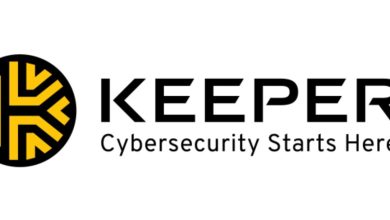Ensign InfoSecurity Unveils AI-Driven Real-Time Deepfake Detection Solution

Ensign InfoSecurity (“Ensign”), one of Asia’s largest comprehensive cybersecurity solutions providers, has launched “Aletheia” – an AI-driven real-time deepfake detection solution. Within seconds, Aletheia can alert users to deepfakes during virtual meetings or when browsing the internet. This solution will be available either as an endpoint software or a Chrome browser plug-in, providing enterprises, governments and consumers a seamless layer of defence against deepfakes.
Alerts to Manipulated, Deepfake Real-Time Audio and Video Content In Seconds, with Up to 90% Accuracy
At present, deepfake detection relies heavily on visual inspections such as unusual or awkward facial positioning, body movements, flickering, or mismatched lip movements. However, rapid advancements in Gen AI and Large Language Models have led to the widespread use of recorded and real-time deepfakes. Consequently, the detection of such hyper-realistic audio and videos becomes increasingly challenging. People with malicious intents can now create high-quality fakes at minimal cost and minimal effort, posing significant risks to individuals and organisations. Aletheia was thus developed to enable consumers, enterprises and governments to discern truth from fiction immediately, in real time.
In the development of Aletheia, the team at Ensign Labs first used open-source tools to generate both deepfake audio and videos. Over time, this generated deepfakes and authentic audio and videos served as training datasets to develop Ensign’s suite of AI detection models, giving rise to Aletheia. Running on AI algorithms, Aletheia operates quietly in the background when launched, analysing video pixels and audio frequencies of the played media content. Within seconds, notification sidebars will appear on the screen, indicating the authenticity of the media input with up to 90% accuracy.
A Seamless and Scalable Solution for Enterprises
Available as an endpoint software for computers running on Windows operating systems, Aletheia performs inference (AI analysis and detection) locally on the user’s device. This localised analysis ensures both privacy and prevents latency issues that may occur when data is sent to the cloud. For computers that run on non-Windows operating systems, Aletheia will also be available as a Chrome browser plug-in, alerting users of audio and video deepfakes during Chrome browsing.
For enterprises, Aletheia goes beyond the computer and can be seamlessly integrated into an organisation’s SIEM where collected results serve as additional cybersecurity insights to provide enterprises with a clearer view of their overall digital security.
“The democratisation of deepfake technology has raised serious societal risks, from commercial frauds, spreading of falsehoods, to manipulation of public opinion to discredit politicians,” said Mr Tan Ah Tuan, Head of Ensign Labs at Ensign InfoSecurity. “As the technology landscape continues to evolve, the arms race between creating and detecting deepfakes will only intensify. This also means that Aletheia will be continuously updated to combat the latest deepfakes. As cyber defenders, Ensign InfoSecurity strives to be at the forefront of innovation, developing the right solutions for enterprises and individuals to navigate the complex digital landscape,” he added.
At the upcoming GovWare 2024, Ensign will be showcasing Aletheia and other AI-powered cybersecurity solutions under the theme “AI-Powered Innovations: Safeguarding Your Reputation”. Visit us at Ensign’s Booth H02 between 15 and 17 October at the Sands Expo and Convention Centre.




